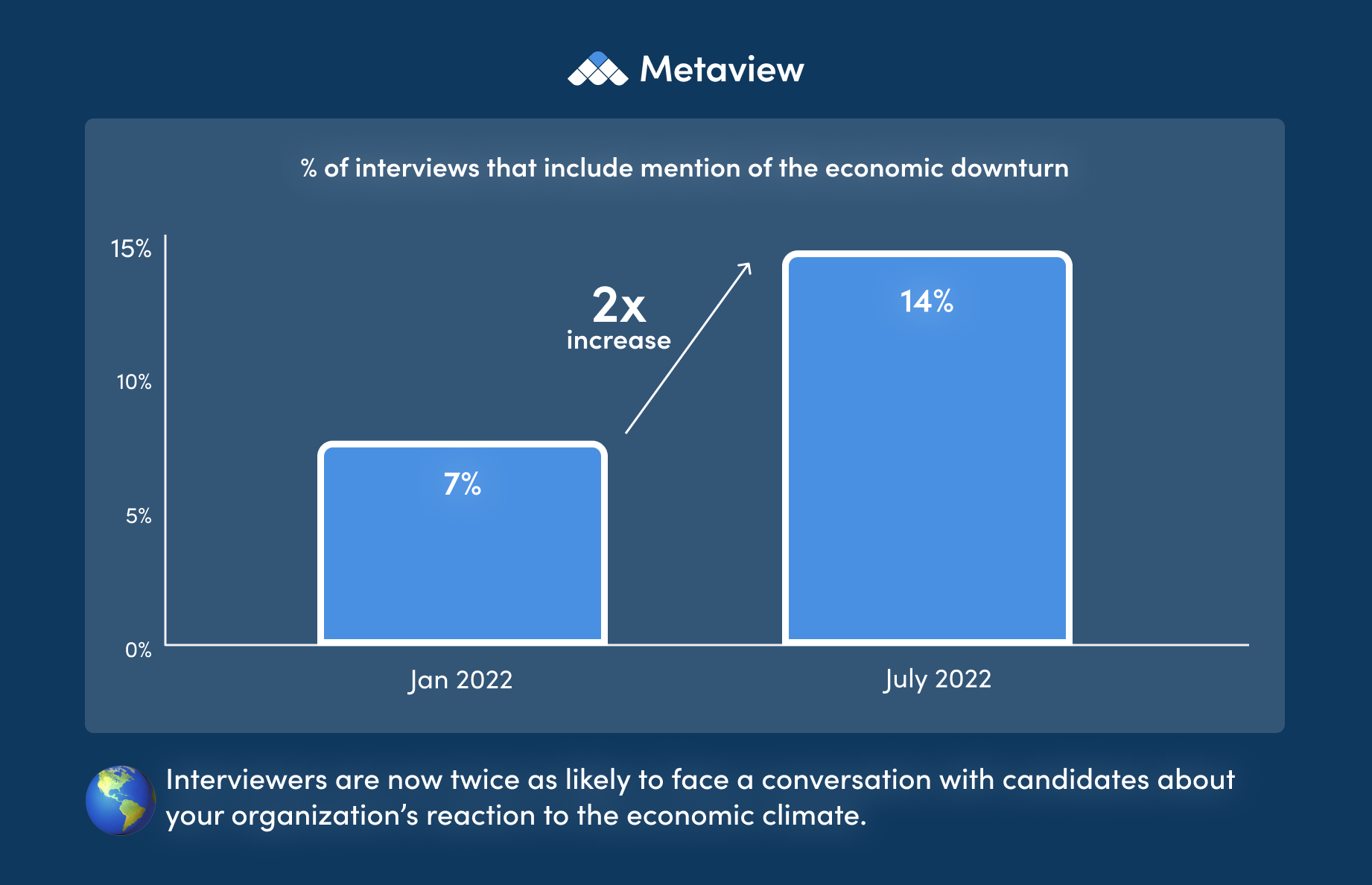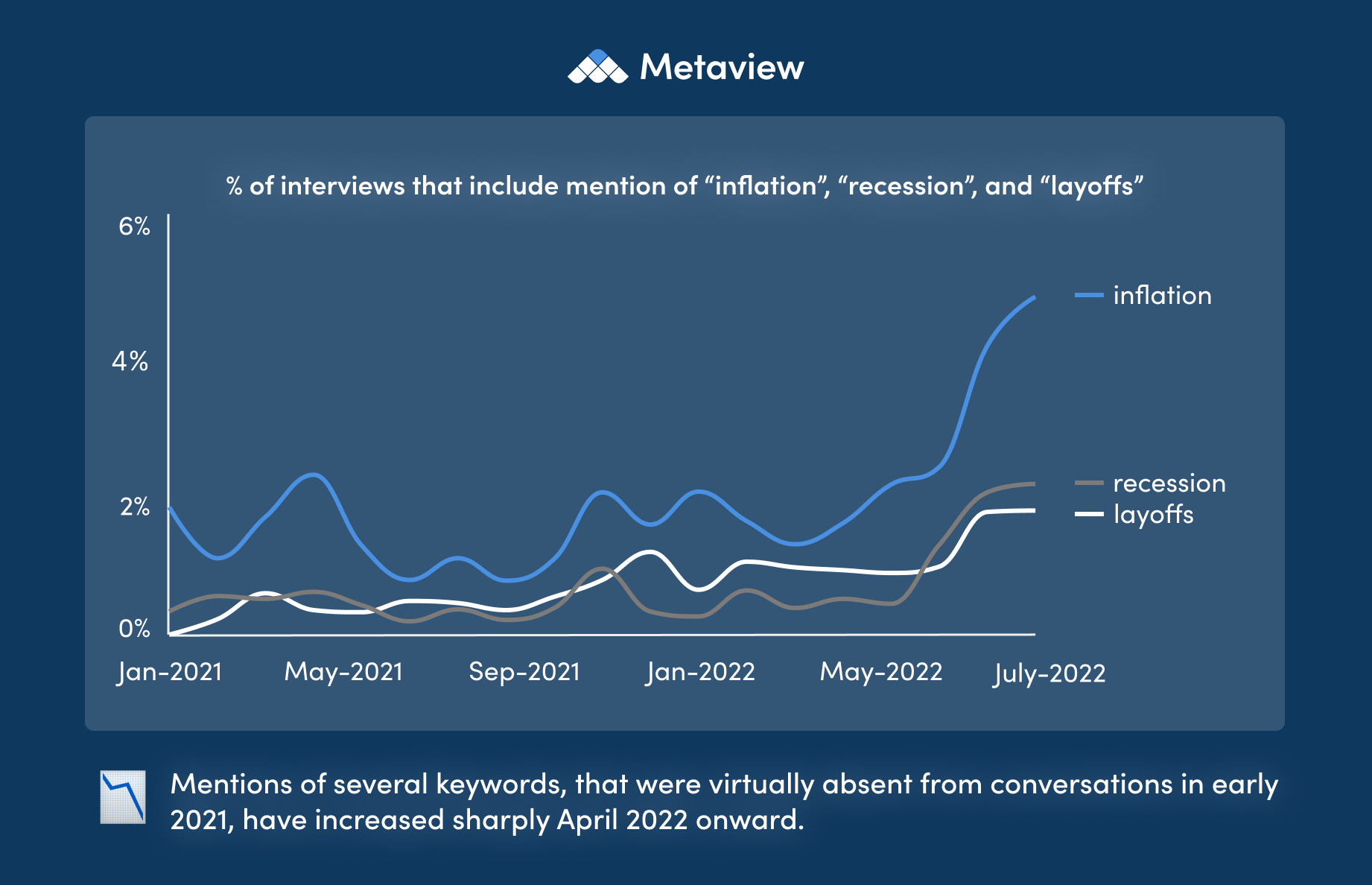Whether it’s what you’re reading on your LinkedIn feed, discussing with friends, or hearing on the news, talk of the changing market conditions seems to be everywhere. It’s hard not to feel like worry about macroeconomic changes is at a fever-pitch. Given the increasing conversation on these topics, we were curious whether the same concerns are bubbling up during the interview process and if there’s reason for team builders to adjust their conversations with candidates accordingly.
To get a clear picture of the degree to which market conditions are on candidates’ and interviewers’ minds, we analyzed mention of keywords related to macroeconomic uncertainty and company financial health in interviews captured by Metaview over the past 18 months. The data revealed that the hiring process is not immune to economic worry:


To help put the scale of this into perspective, 21% of interviews included mention of Covid-19 in early 2021, so while talk of economic worry is not quite at the level of ubiquity of pandemic discussion, it’s clear these subjects are top of mind for many people.
Tips for preparing for candidate conversations in a market slowdown
So, what does this mean for how you should approach candidate conversations during these uncertain times? The mindset from which candidates are evaluating opportunities has shifted, so it’s wise to be prepared to proactively address concerns and answer tough questions. Here are a few tips for successfully navigating conversations in the current market.
Arm interviewers with a script to tackle tough questions
Knowing that concerns about the macro environment are likely to come up, it’s a good idea to provide a script for dealing with these questions to make sure interviewers are prepared to give thoughtful, honest answers. We recommend to keep responses concise, at under two minutes, and focused on addressing why you’re still in a strong position to focus on quality hiring, while acknowledging macro factors.
Here’s a sample outline of the way we recommend to structure answers:
While we’re keeping an eye on the macro, we’re in a strong position: [provide proof points].
Most importantly, we believe it’s always a good time to hire exceptional talent.”
Presenting a responsible approach to growth and evidence for why you remain well-placed to achieve your long-term vision can ease doubts and help candidates understand that you are prepared to adapt to changing realities.
Share real examples of best-practice conversations
Once you’ve established a script to address common questions, you can take things one step further by providing real-life examples for the team to learn from. If you’re already using Metaview, you can identify interviews where there are examples of strong responses to these questions and share those snippets so learnings can spread around your company. Especially for more junior interviewers, having live examples to watch in context can be powerful learning tools to help them address tough questions with confidence.
These are uncertain times for everyone, but by giving interviewers the tools and training to address tough questions, you can continue to provide a great candidate experience and attract high-quality hires—regardless of macro factors that can’t be fully controlled.


